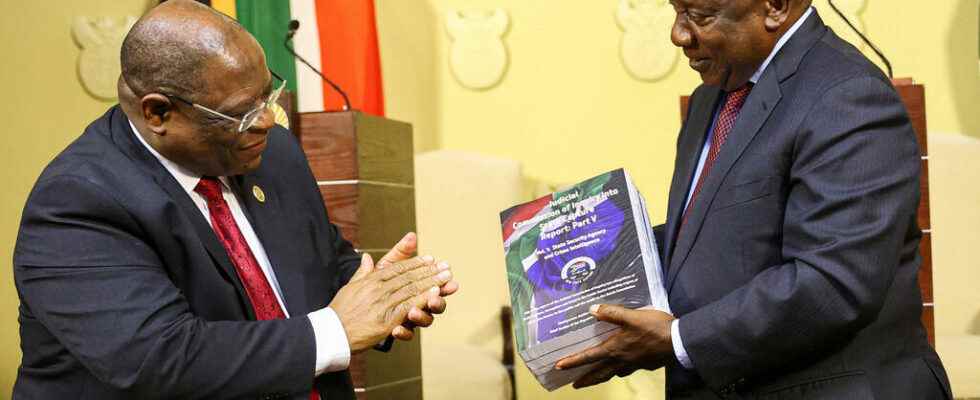In South Africa, the commission of inquiry into corruption finally submitted the final part of its report on Wednesday June 22, putting an end to more than four years of work. But this report is just the beginning. it remains to be seen what will become of its recommendations
With our correspondent in Johannesburg, Claire Bargeles
Led by Judge Zondo, this commission will have studied closely the vast system called “capture of the State”, which allowed among other things to the Gupta brotherswith the help of President Jacob Zuma, to divert billions of euros of public money.
This last part, which comes to complete the work of the commission, returns in particular to the cases of corruption within the intelligence services, public television, and the company of the railroads.
► To read also: South Africa: Zondo commission demonstrates the looting of Eksom under the Zuma regime
The full report, over 5,000 pages, is now in the hands of President Cyril Ramaphosa: “ Within four months, I will officially present the full report to Parliament, at which time I will indicate my intentions with regard to the recommendations of the committee. “said the magistrate.
Recommendations for prosecution have been issued against several people, including former President Jacob Zuma.
The commission also believes that Cyril Ramaphosa, then vice-president, should have done more at the time, to denounce the rampant corruption.
For political analyst Ralph Mathekga, it is therefore important that the reform recommendations are also applied: “ There are a number of things that have been raised by the commission that have to do with the operation of the system. For example the way in which executives are appointed, at the head of public companies, and all the problems in general which are linked to governance structures. The commission proposes among other things that the election of the South African president be done by direct ballot, so that he depends a little less on his party.
